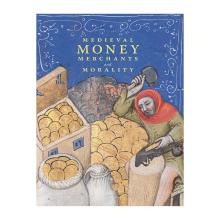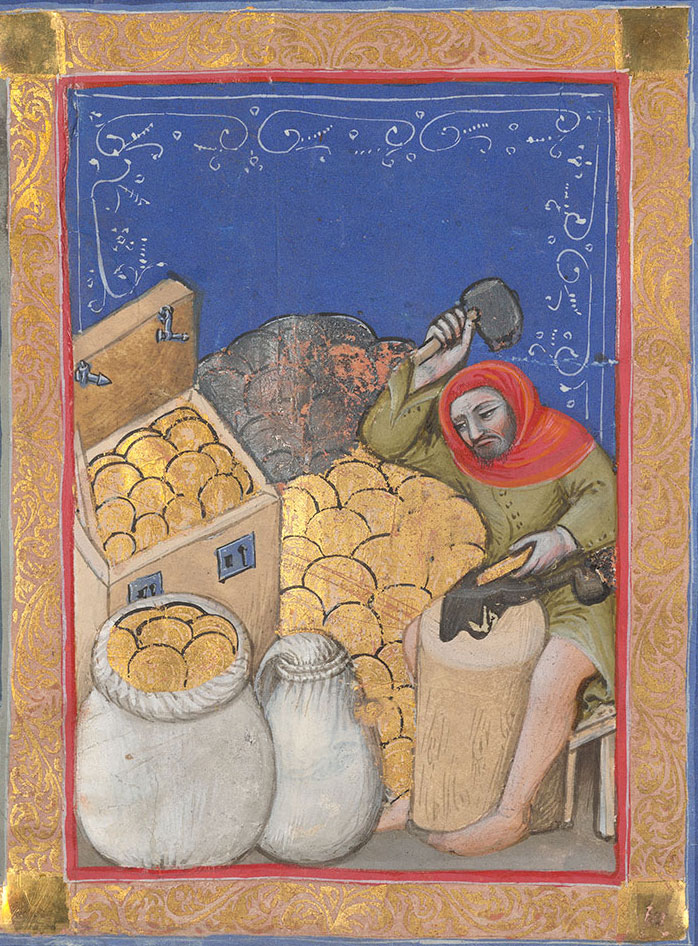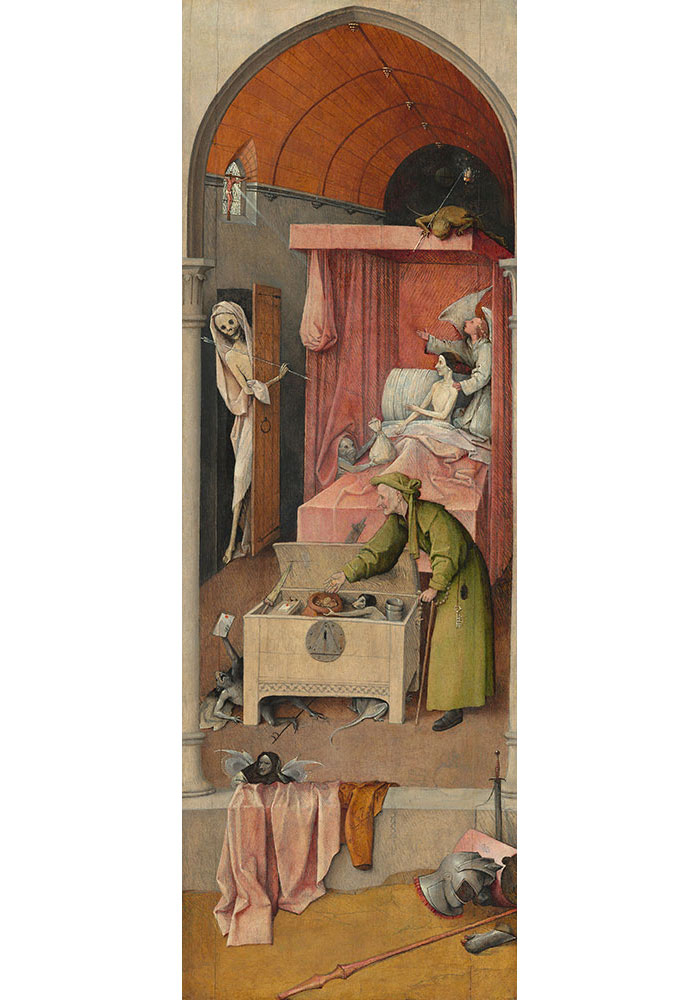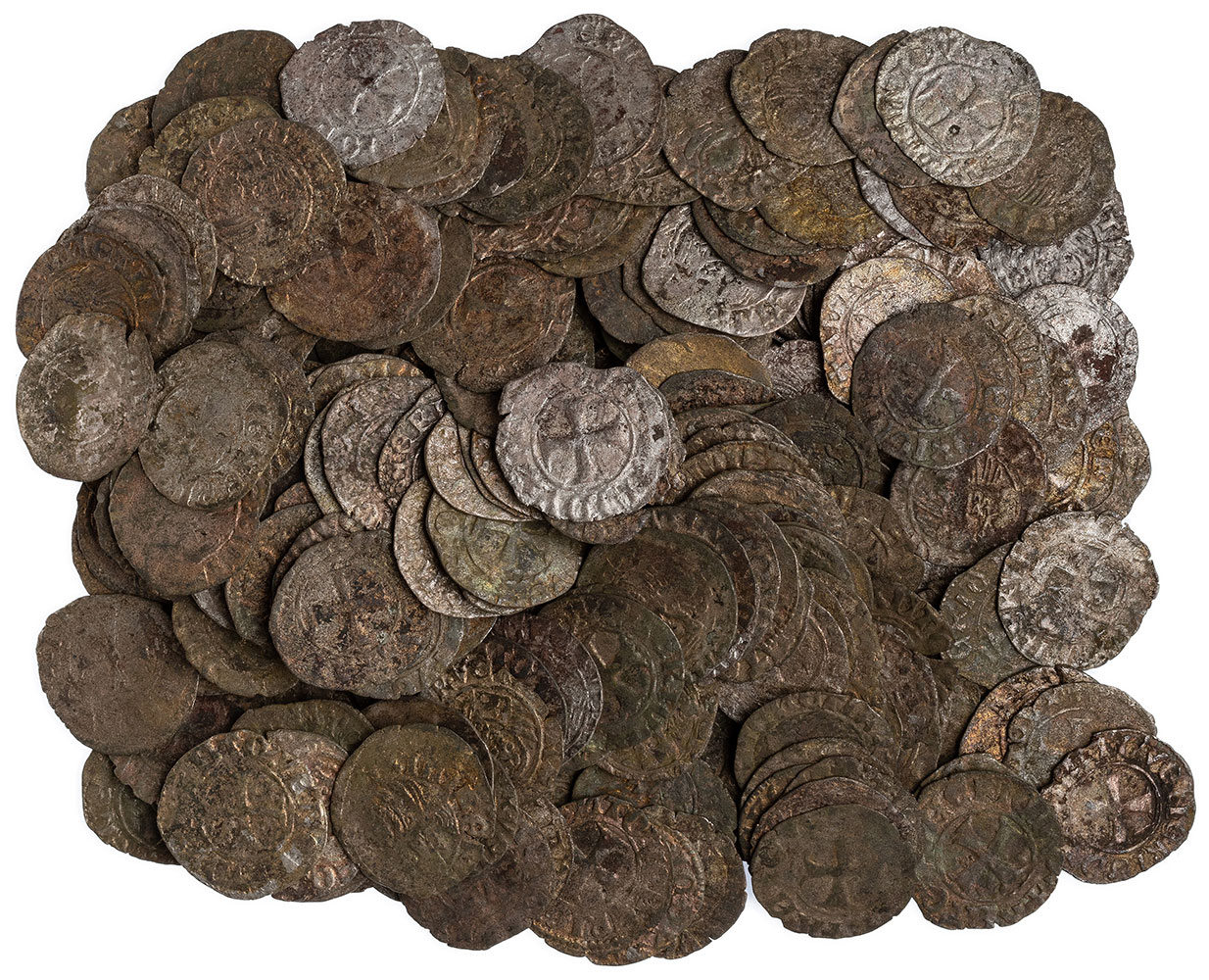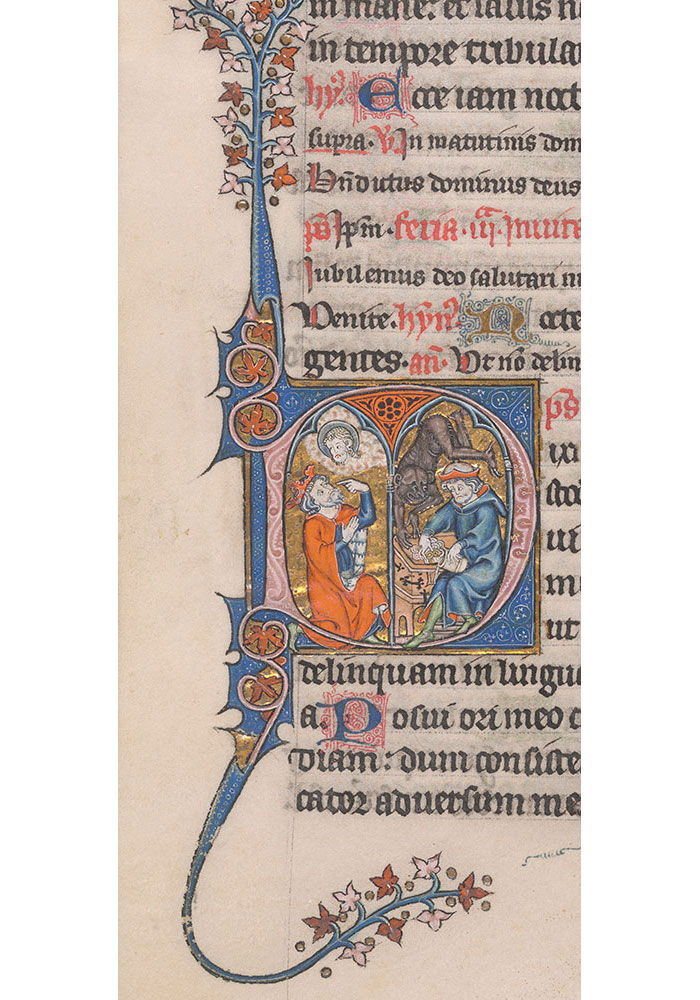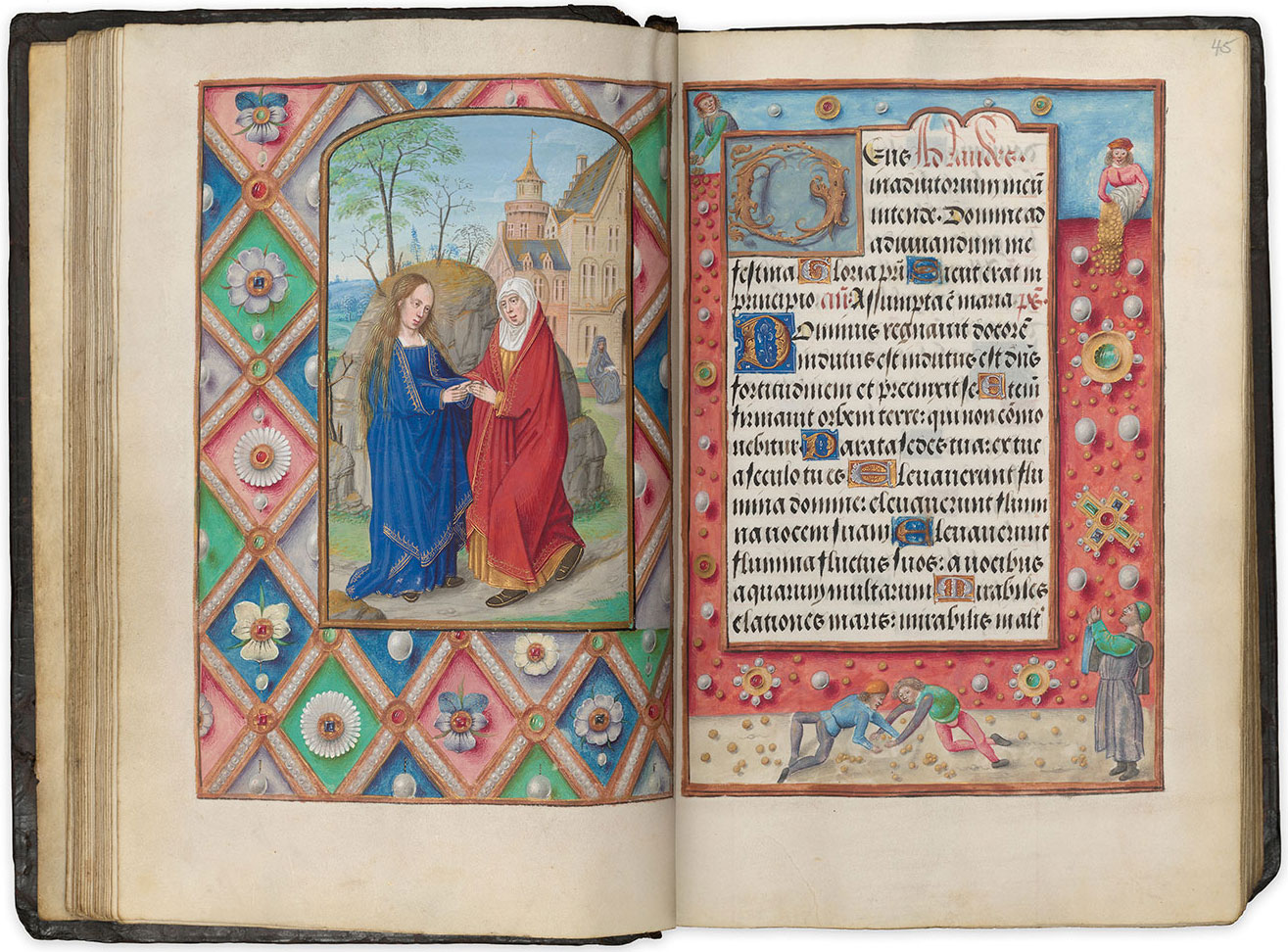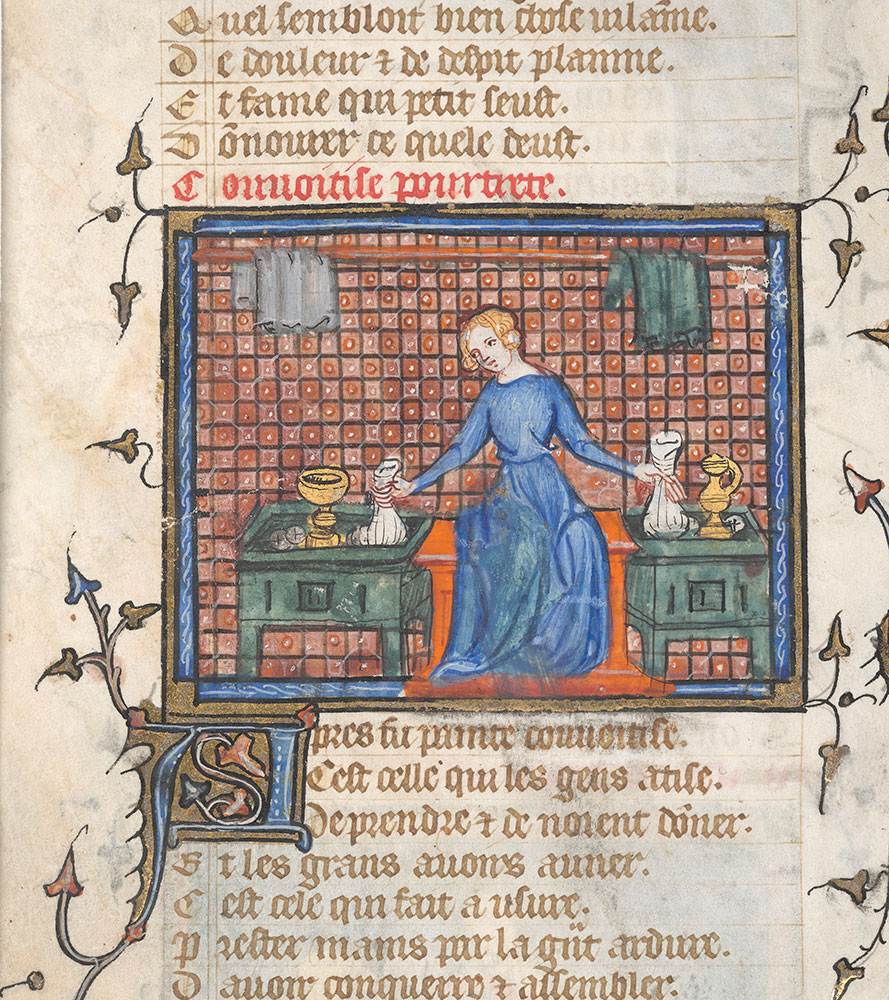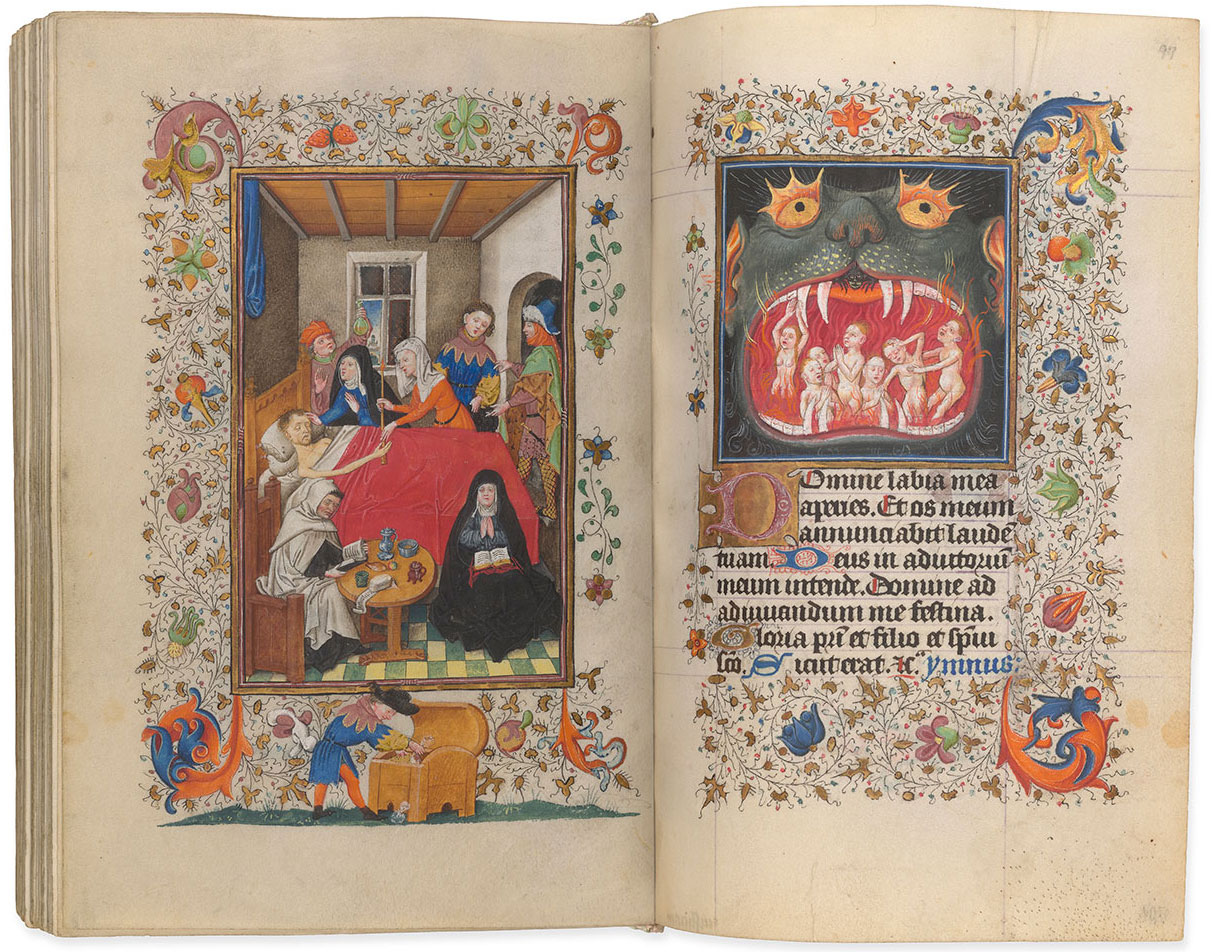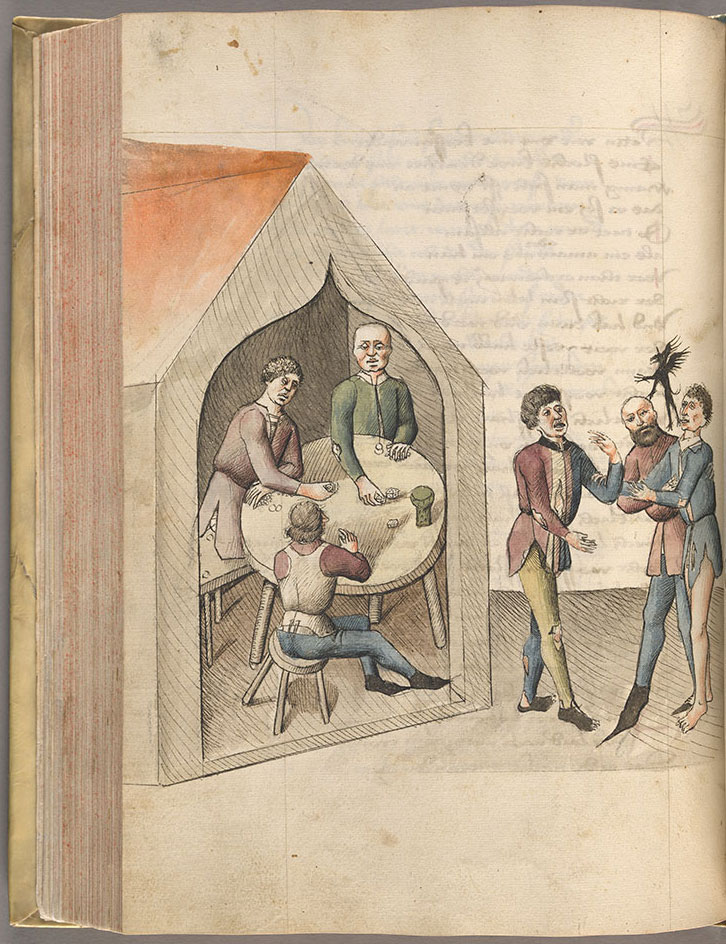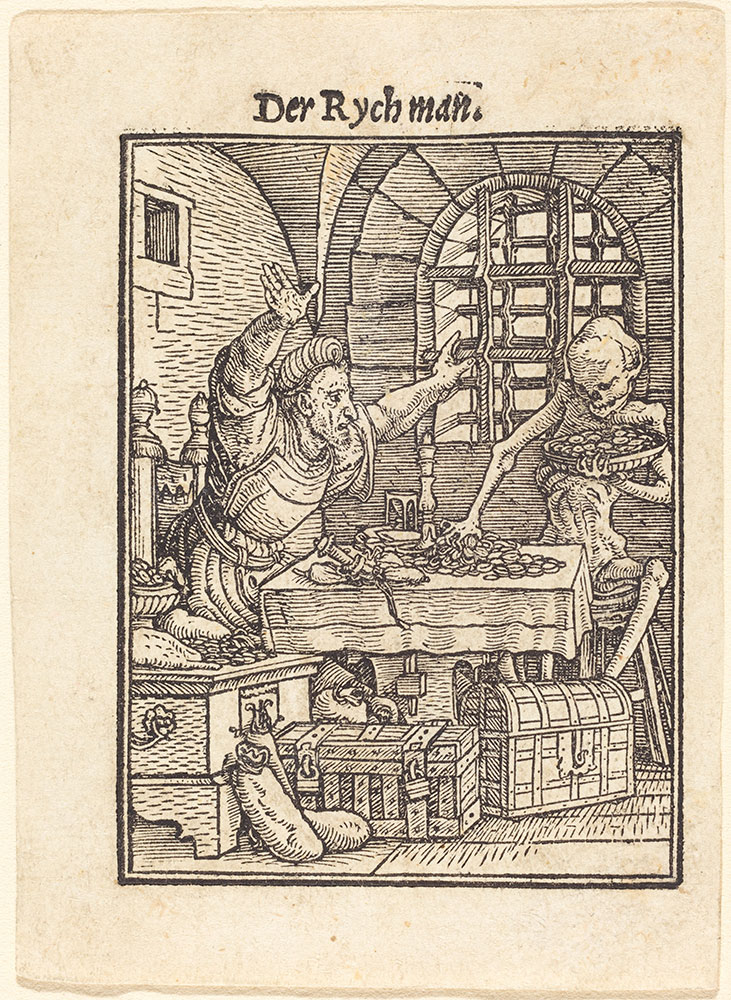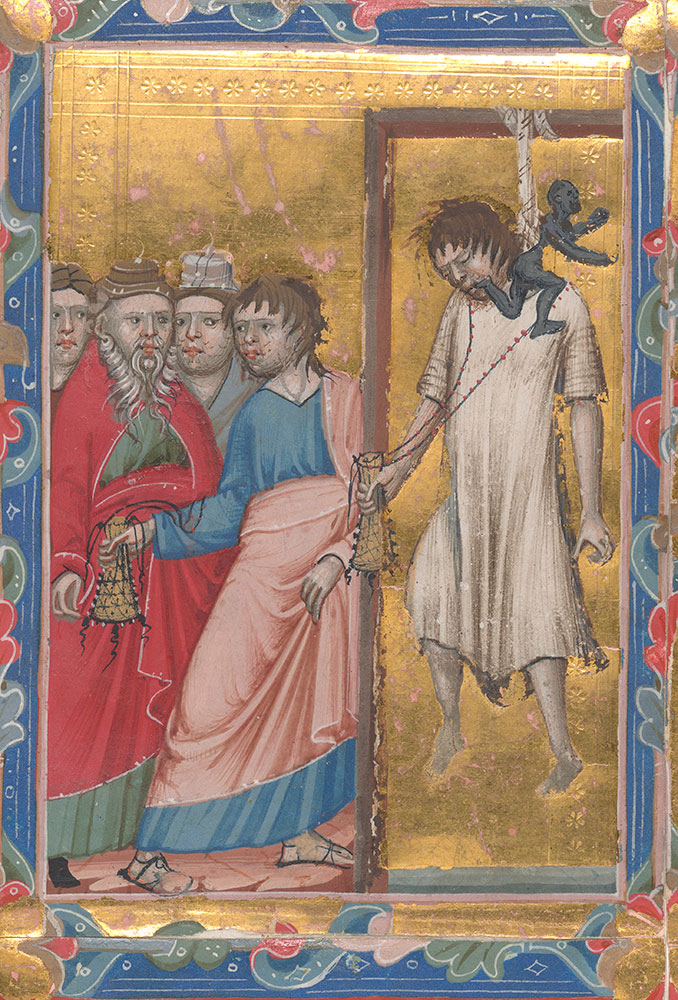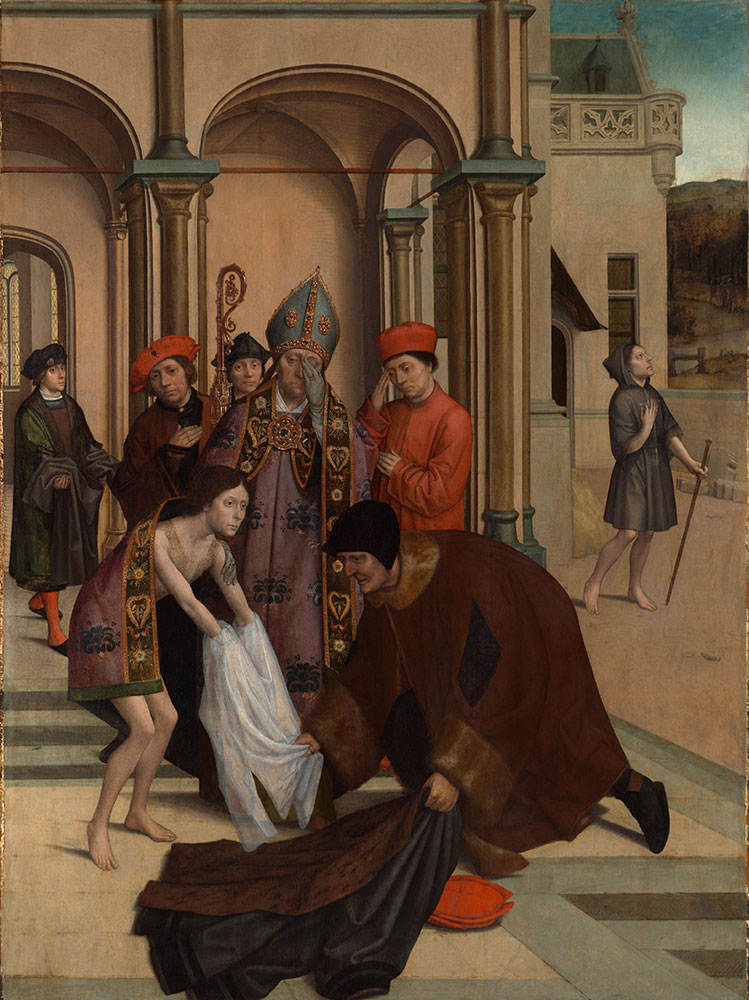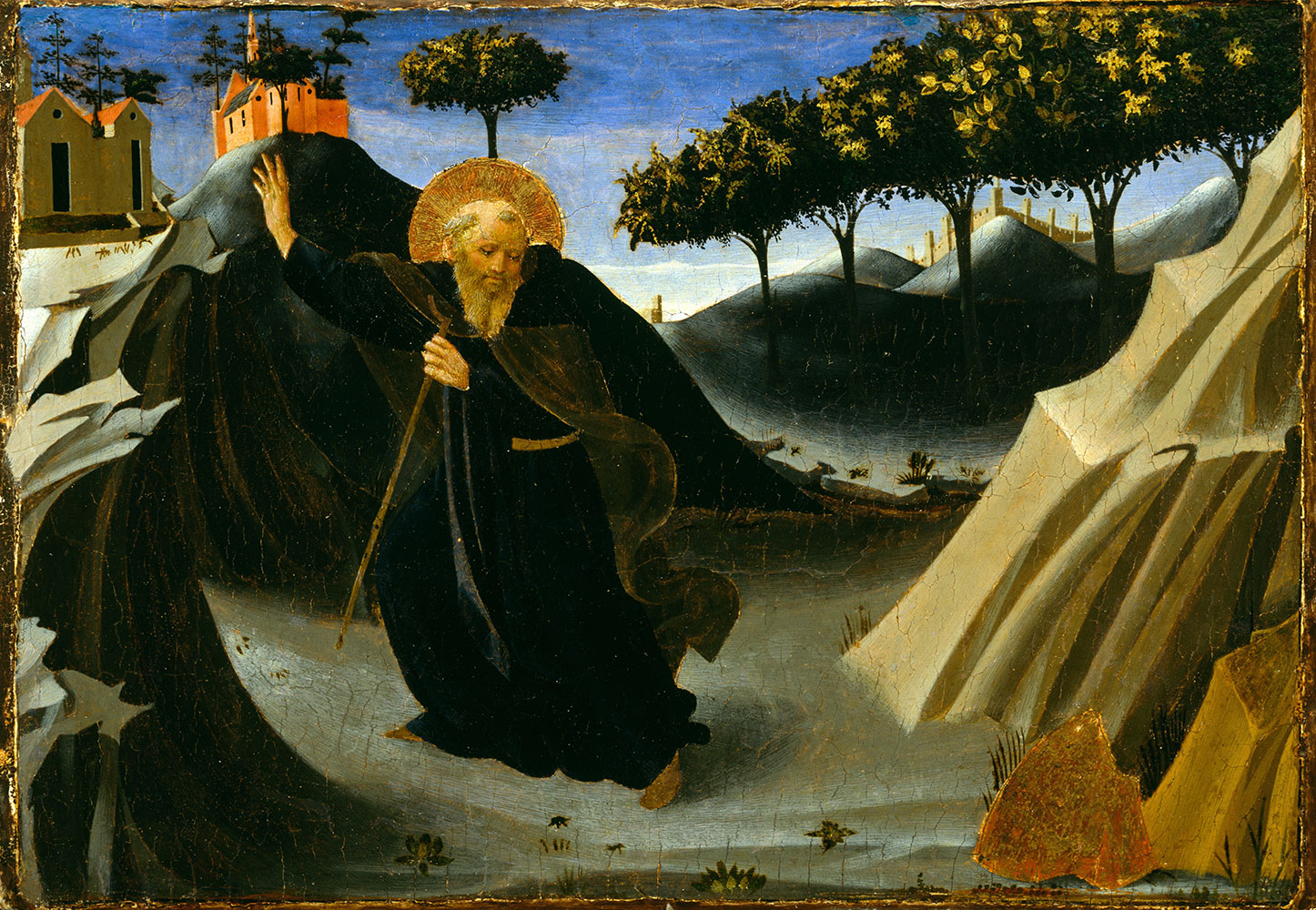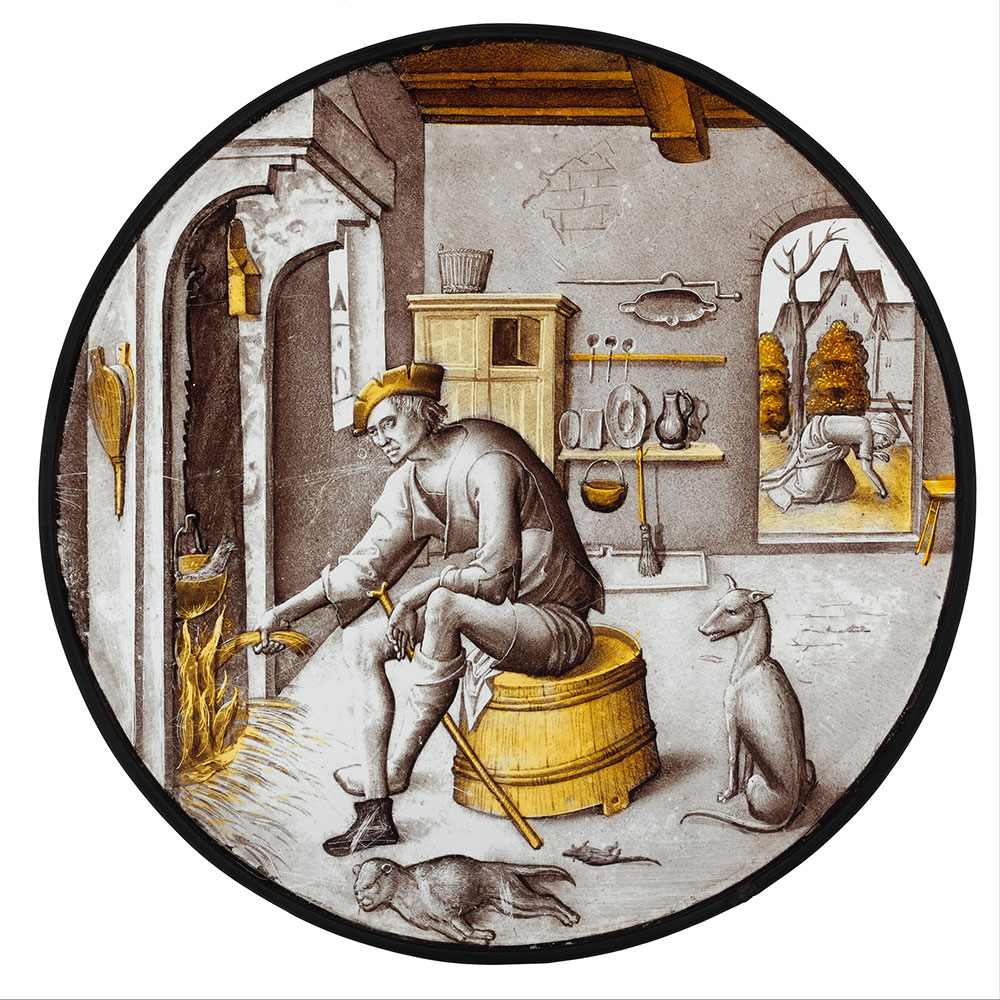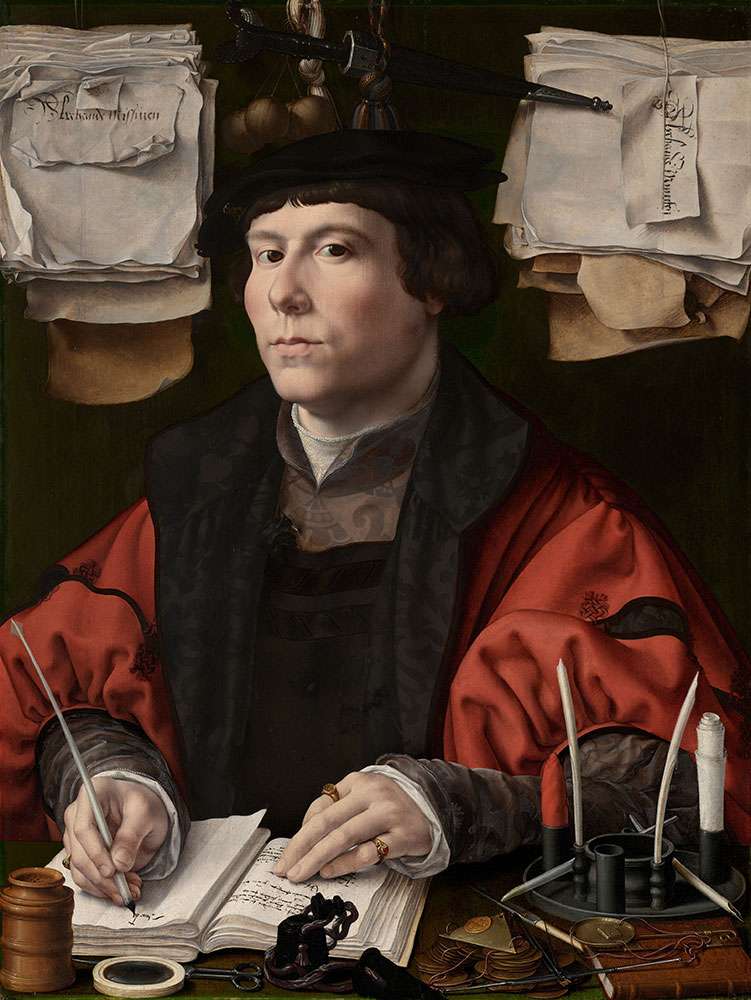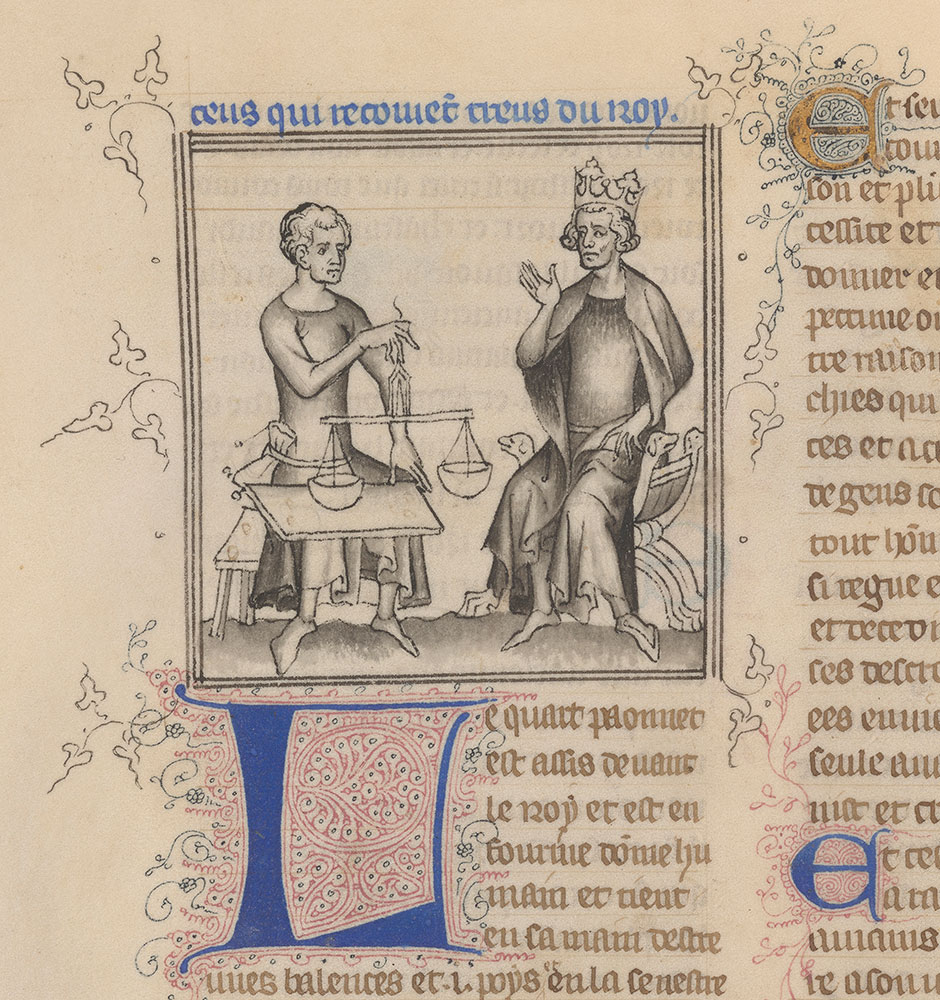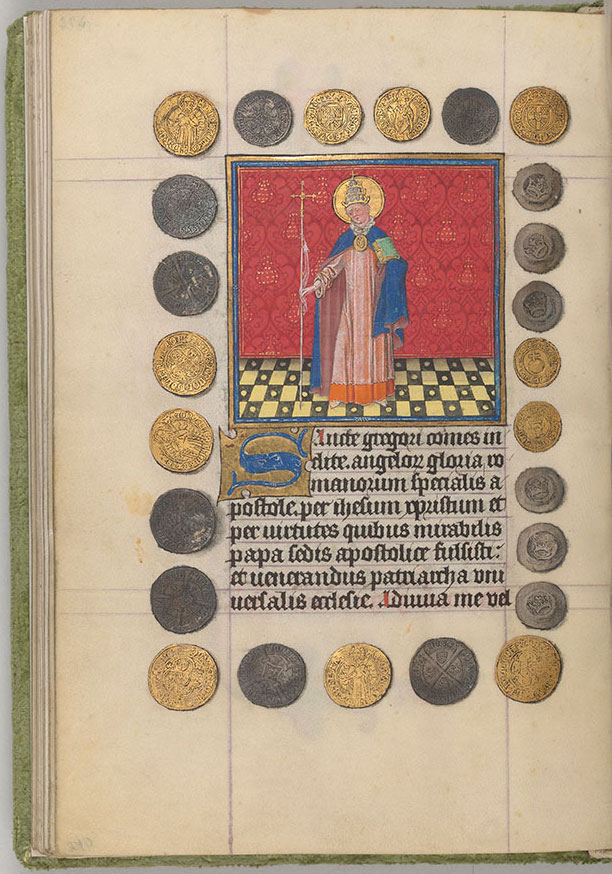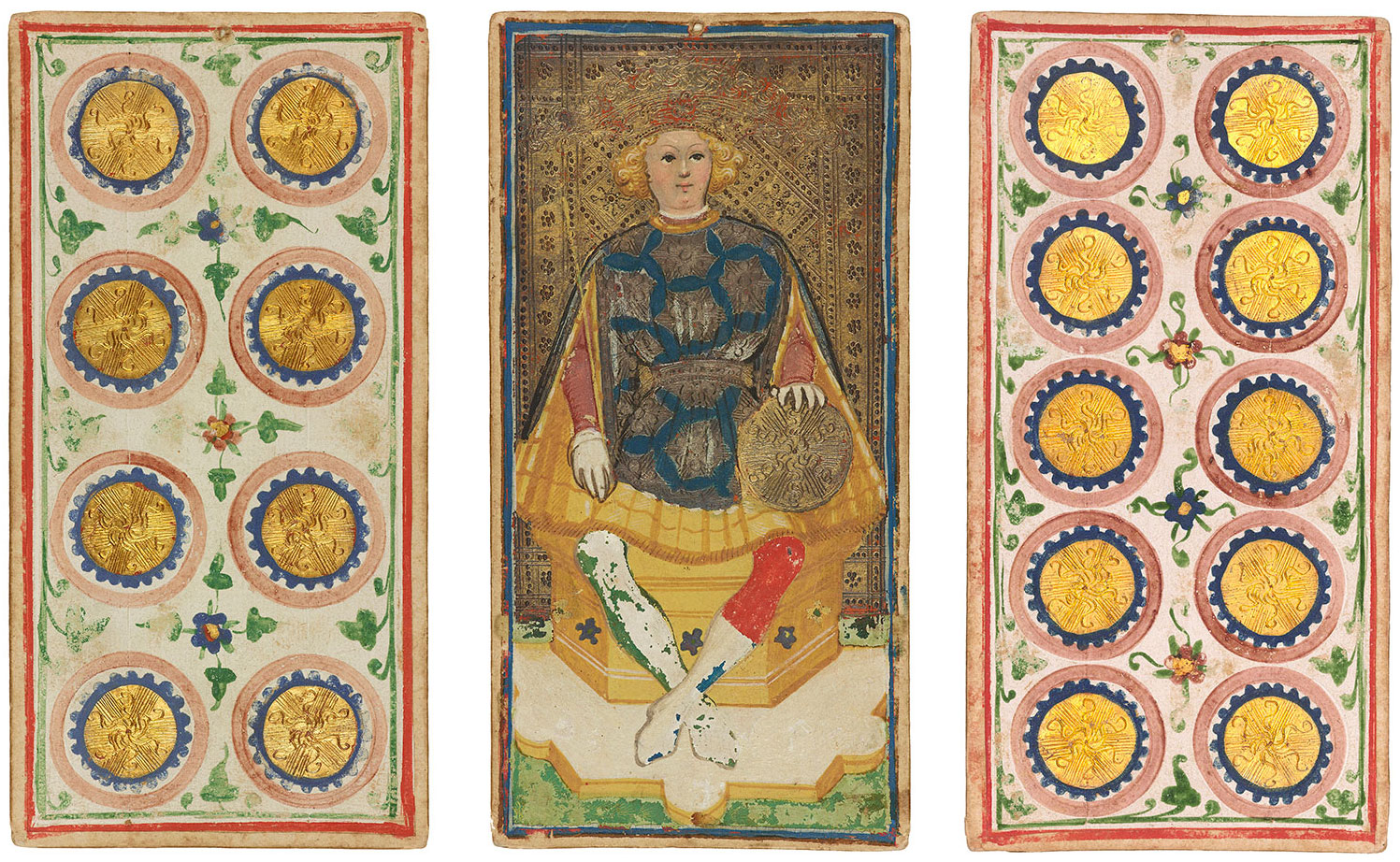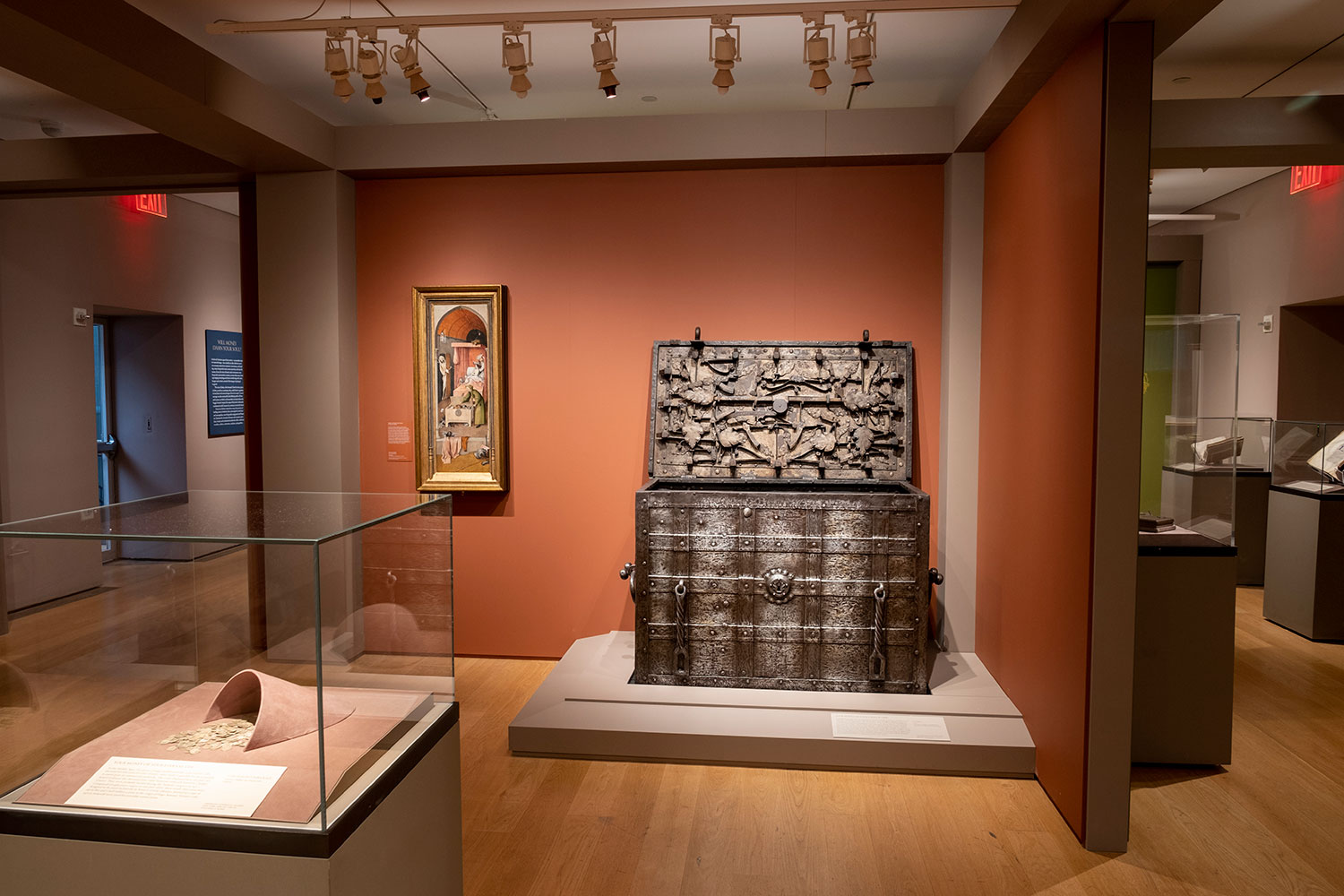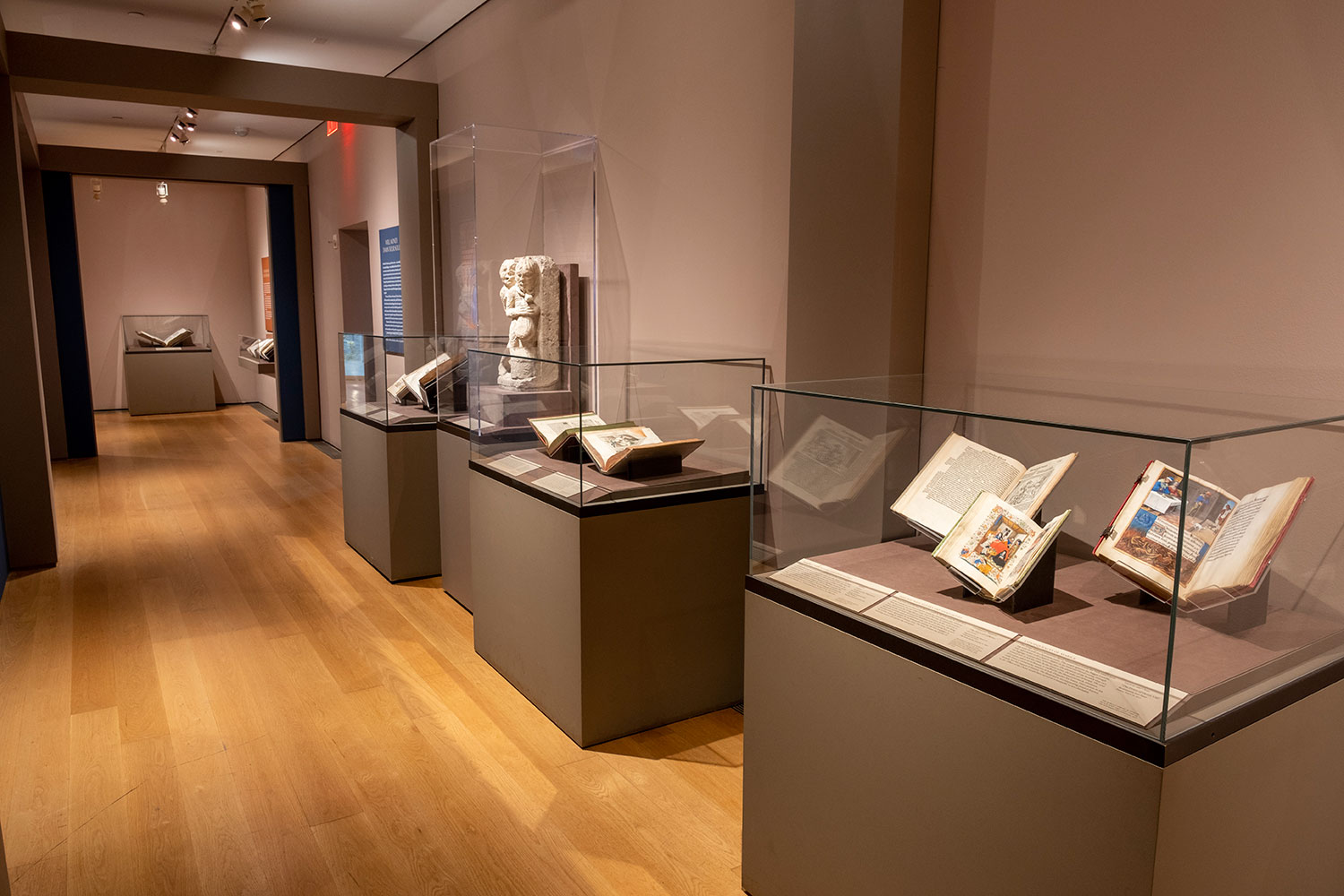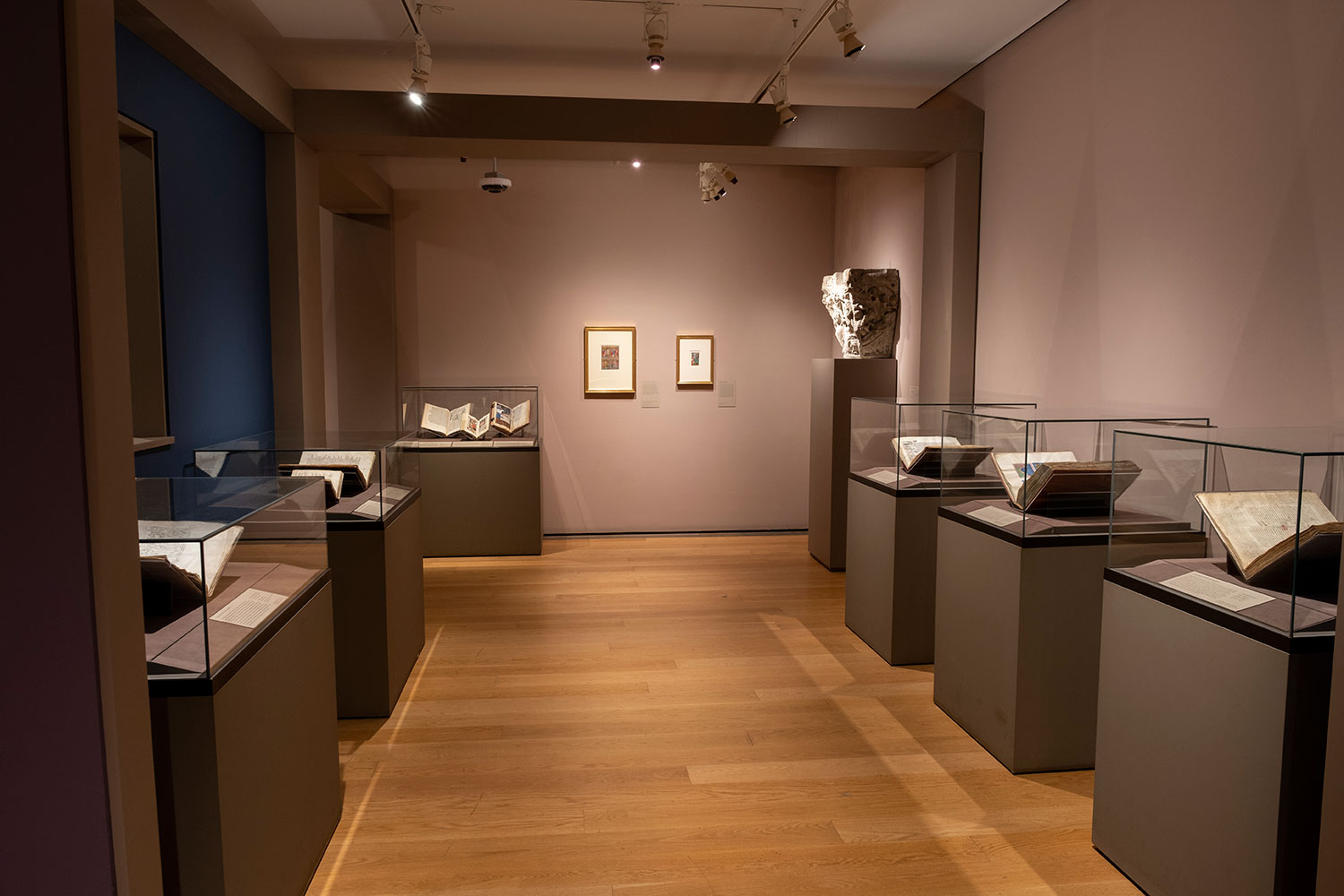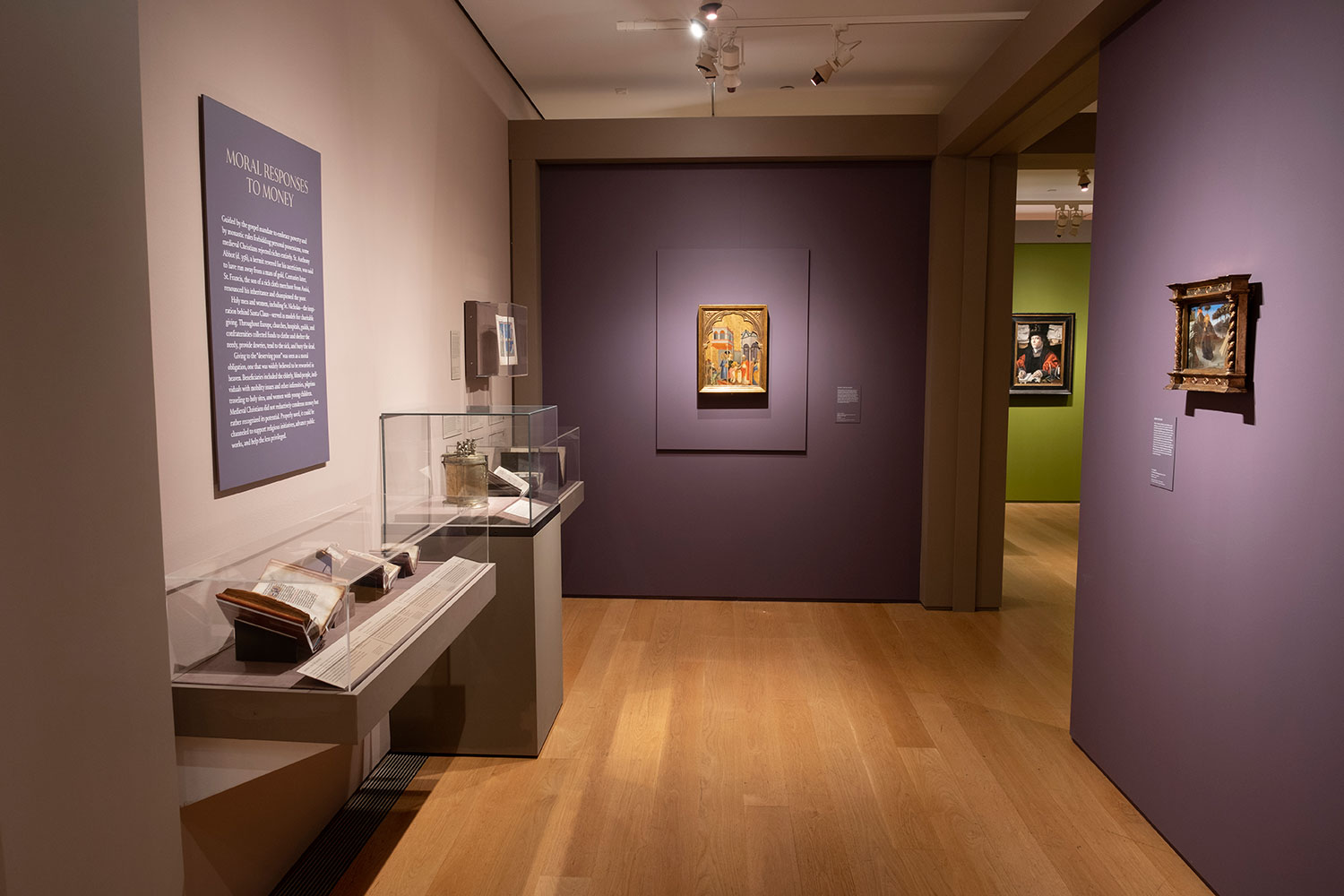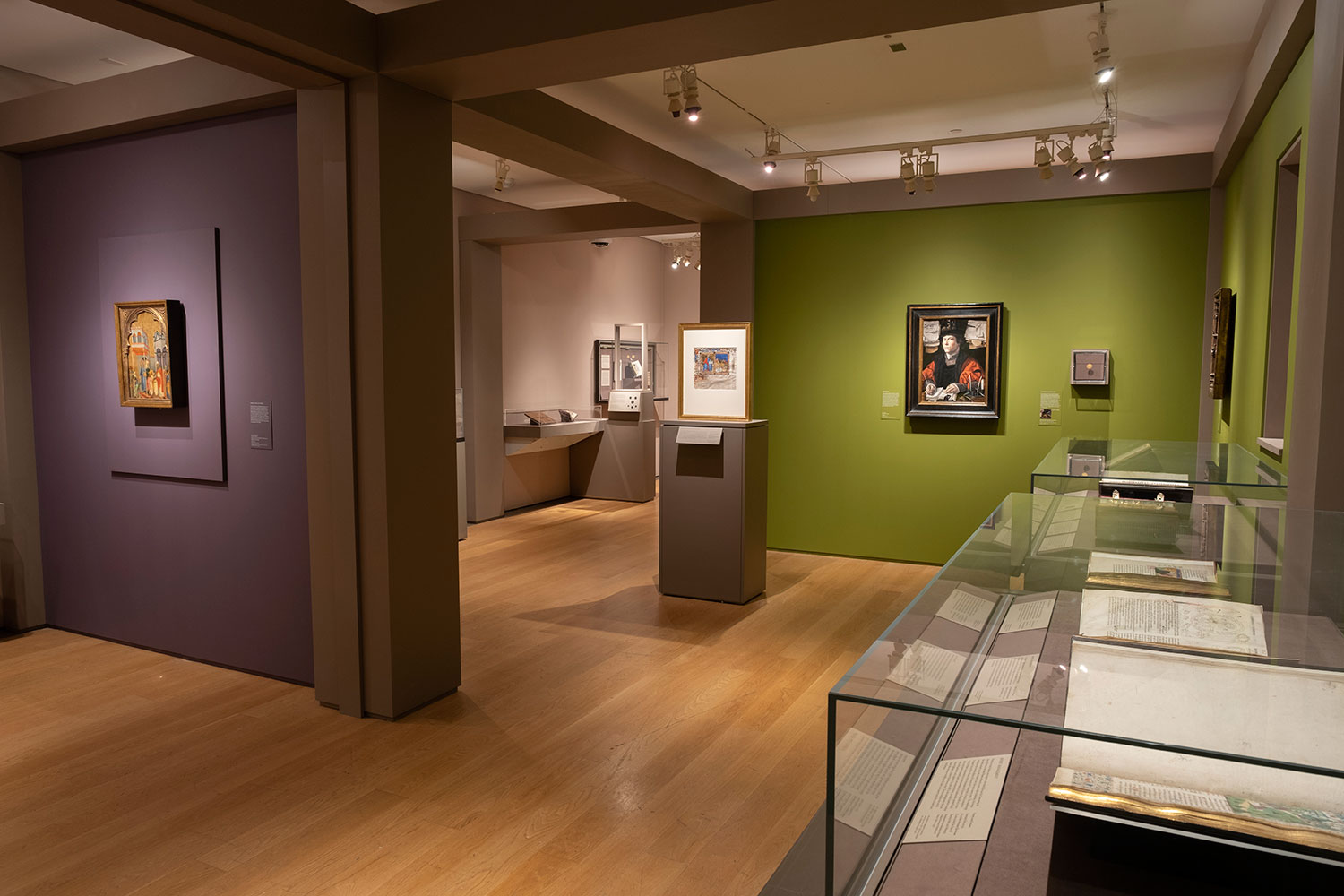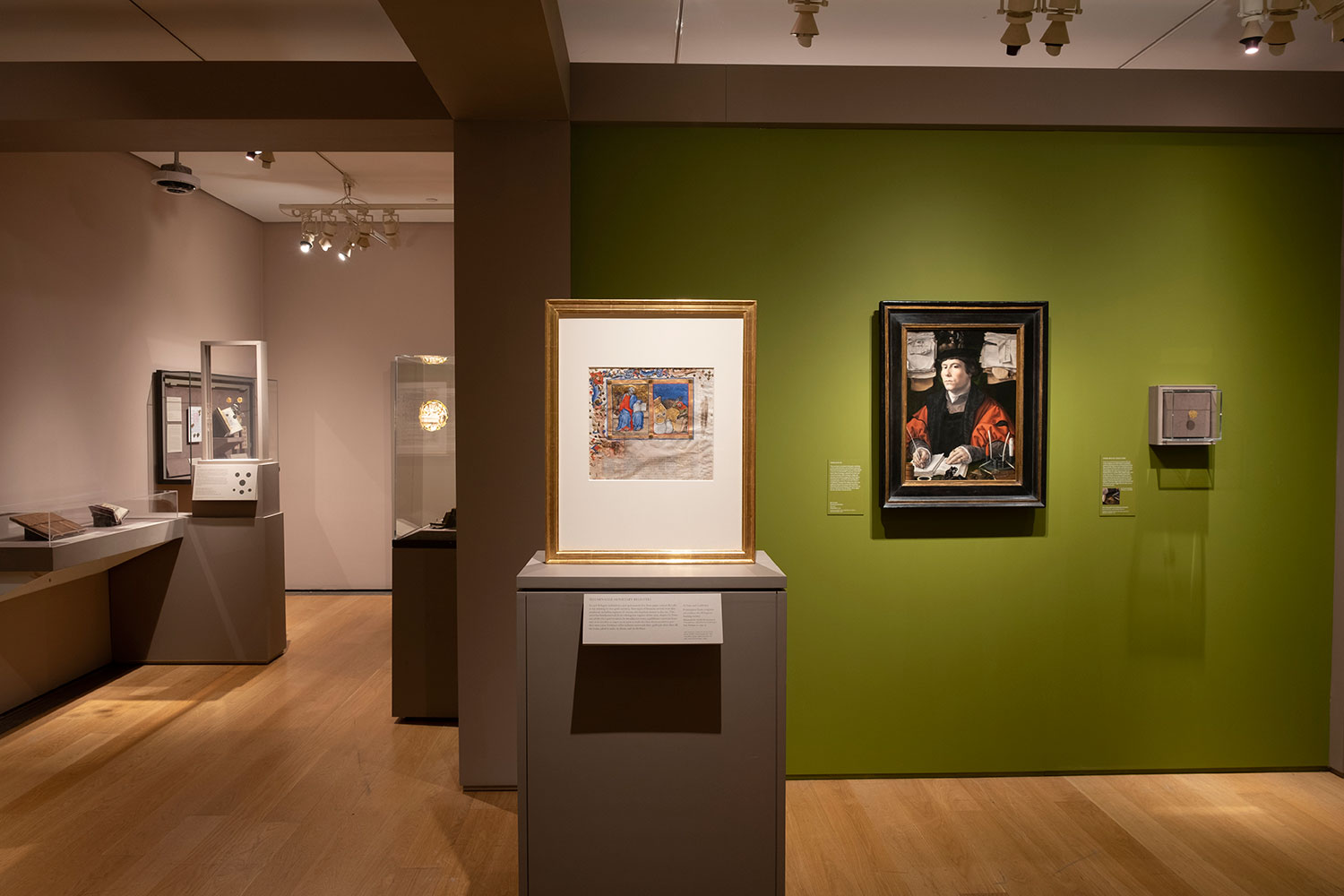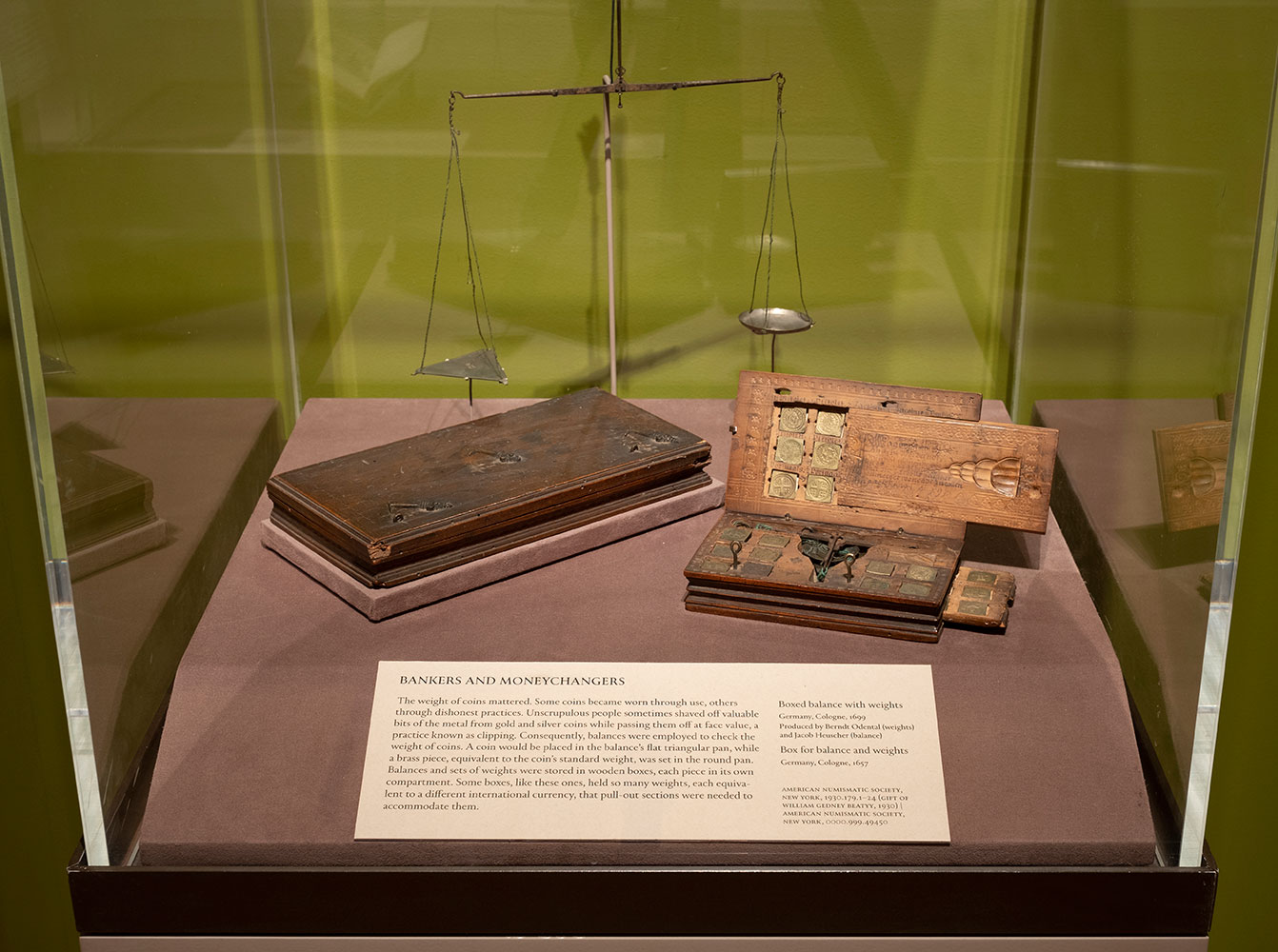Medieval Money, Merchants, and Morality charts the economic revolution that took place at the end of the Middle Ages and the early Renaissance. Trade was conducted on an unprecedented scale, banks were established, and coinage proliferated like never before. The widespread use of money in everyday life transformed every aspect of European society, including its values and culture.
Bringing together some of the most acclaimed manuscripts in the Morgan's collection and other exceptional objects including a renaissance purse, a brass alms box, and a hoard of coins, this exhibition will explore the fate of the avaricious, attitudes towards the poor, contentious lending practices, and money management.
The famous Hours of Catherine of Cleves, the Hours of Henry VIII, and the Prayer Book of Queen Claude de France will be presented from a decidedly new angle, combining economic and art history to consider the early history of capitalism and the crisis in values that it sparked. These will feature alongside lesser known treasures, including an Italian account book in its original binding and a stunning leaf from a register of creditors made in Bologna, Italy, in 1394–95. As people today reflect on fluctuating markets, disparities in wealth, personal values, and morality, the themes addressed in this exhibition are as relevant as ever.
The exhibition is curated by Diane Wolfthal, David and Caroline Minter Chair Emerita in the Humanities and Professor Emerita of Art History, Rice University, with Deirdre Jackson, Assistant Curator of Medieval and Renaissance Manuscripts, The Morgan Library & Museum, New York.
Medieval Money, Merchants, and Morality is made possible by the Lucy Ricciardi Family Exhibition Fund, an anonymous donor, and the Andrew W. Mellon Fund for Research and Publications, with support from the Charles E. Pierce, Jr. Fund for Exhibitions, the Achelis & Bodman Foundation, the Samuel H. Kress Foundation, the David L. Klein Jr. Foundation, Marguerite Steed Hoffman, Virginia Schirrmeister and Anne Goldrach, and the Themis Anastasia Brown Fund. Assistance is provided by Elizabeth A. R. and Ralph S. Brown, Jr., Caroline Sharfman Bacon, Gregory T. Clark, and an anonymous donor.
Leaf of a Register of Creditors of a Bolognese Lending Society, Italy, Bologna, ca. 1390–1400. Single leaf. The Morgan Library & Museum, MS M.1056, fol. 1v detail.
